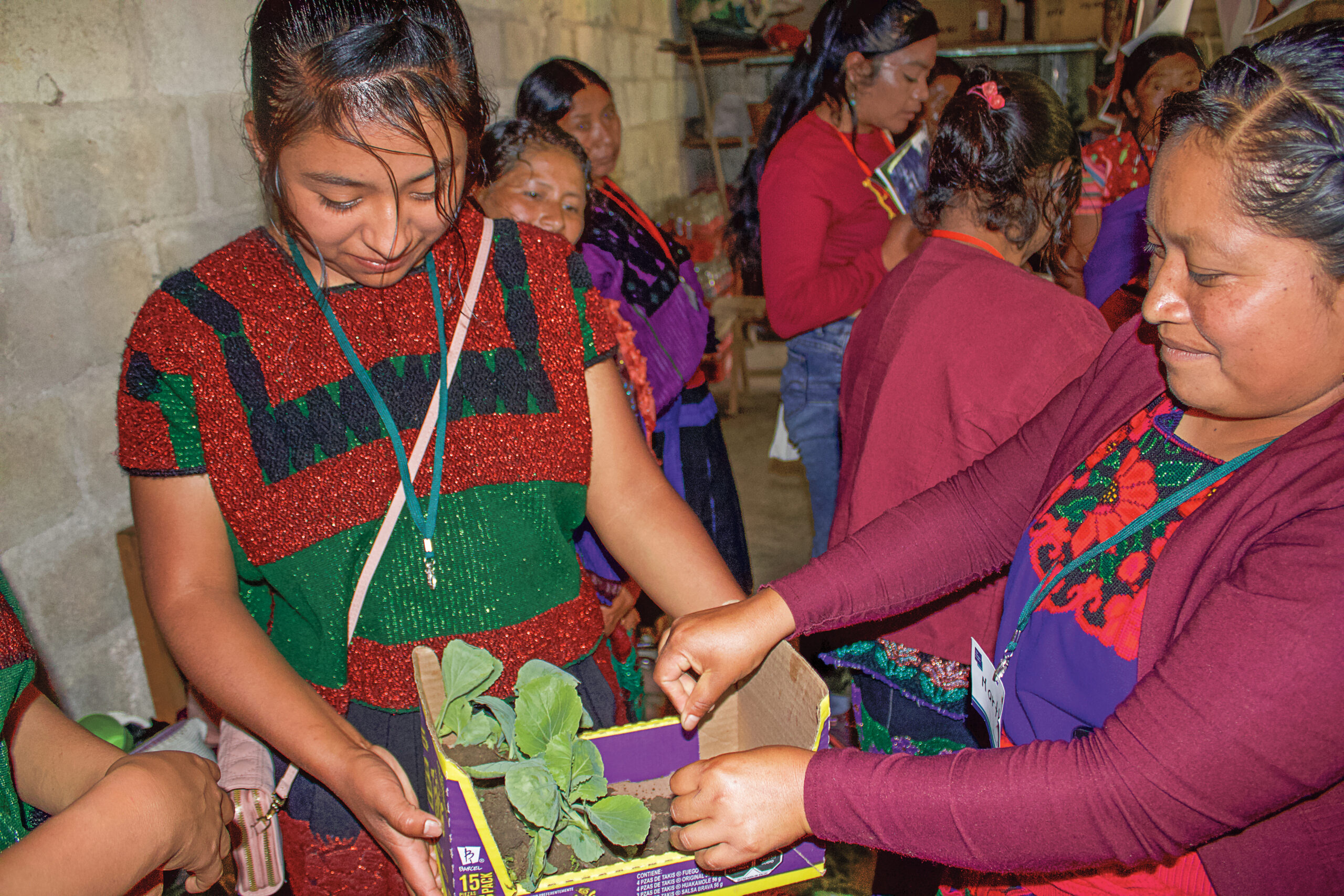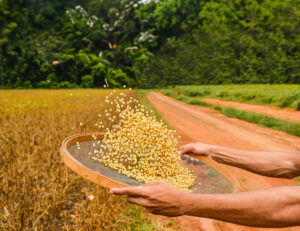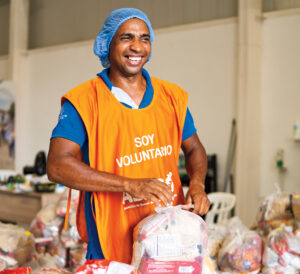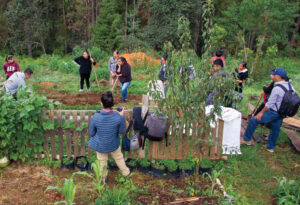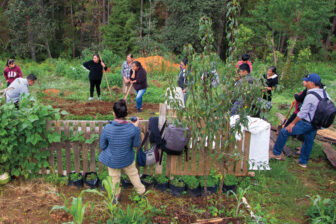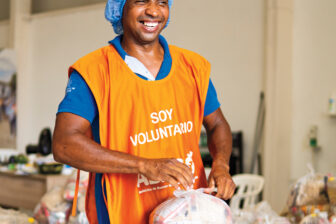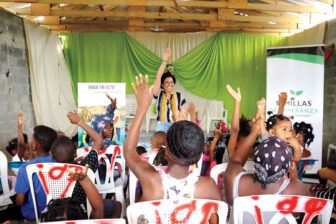This article is adapted from AQ’s special report on food security in Latin America. To see other organizations working on this issue, click here.

LOS ALTOS DE CHIAPAS, Mexico — Twisting and turning through winding mountain roads in a minivan in early August, a group of Maya women, garbed in colorful traditional tunics, chatted in their native Tzotzil language.
Coming from different parts of Chiapas, in southern Mexico, they made their way to the remote village of Tzoeptic to meet another all-female Indigenous group. Eager to showcase regional recipes, organic soaps and textiles tinted with natural dyes that they made from scratch over the past year, they aimed to share how this work was helping them address financial hardship and how they were blossoming into businesswomen.
Since 2023, these women have been taking part in a project that teaches healthy food standards and encourages entrepreneurship using regional products. It is organized by The Hunger Project (THP), an NGO that works to relieve food insecurity. According to THP’s research, 4.9 million people in Mexico suffer from malnutrition.
THP negotiated with officials from the community and provided funds to permit these women to access a plot of land and produce their goods. Securing ownership of land to grow vegetables and ingredients for natural products, they say, can pave the way to financial self-sufficiency and a break with unequal gender traditions.
“These women wake up at 4 a.m. to take care of their families, so instant noodles can appear to be an easier option, rather than growing vegetables in their land,” said Montserrat Salzar Gamboa, 45, the Mexico director for THP.
Gamboa said most shops in rural communities provide processed products, which lack nutrients. “But everyone has the right to access healthy foods and the goal of the program is to promote dietary habits that are more sustainable, healthier and in fact cheaper.” A pot of soup with vegetables accompanied by corn tortillas provides five healthy portions, whereas several packs of instant noodles give less sustenance and cost more.
Machista stereotypes remain prevalent in many villages in Chiapas, where women are pressured to stay at home as caregivers. The extra income from selling goods, an average $63 per household, allows the women to generate savings, and respect.
Luisa Fernanda Ruiz Pérez, 19, from Chixiltón, has received training to make natural dyes and now owns an online shop where she sells tinted linen to neighboring villages. She has also been reflecting on her rights as a woman and developing leadership skills. “These workshops, and selling my textile products, have really changed my life.”



